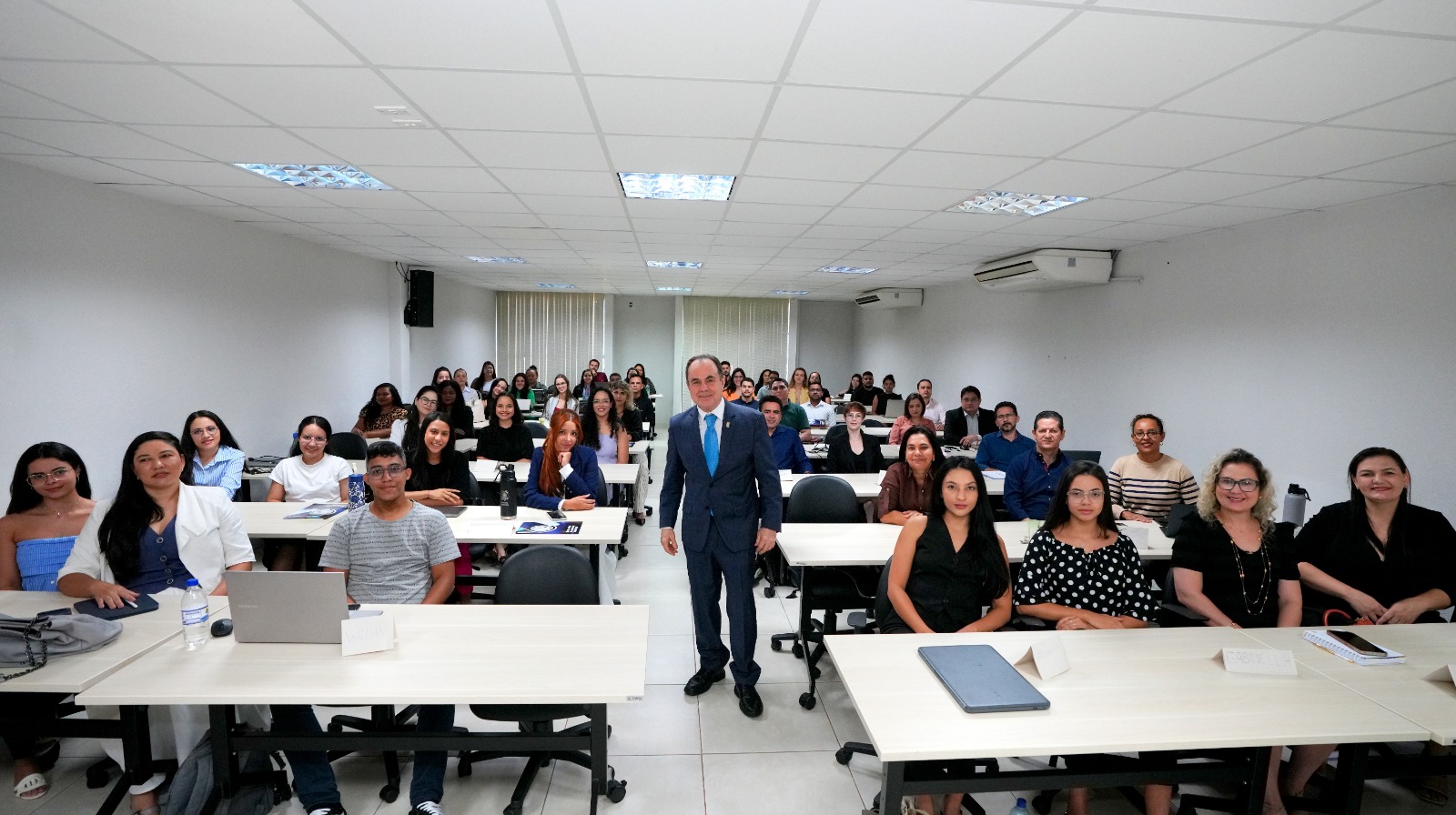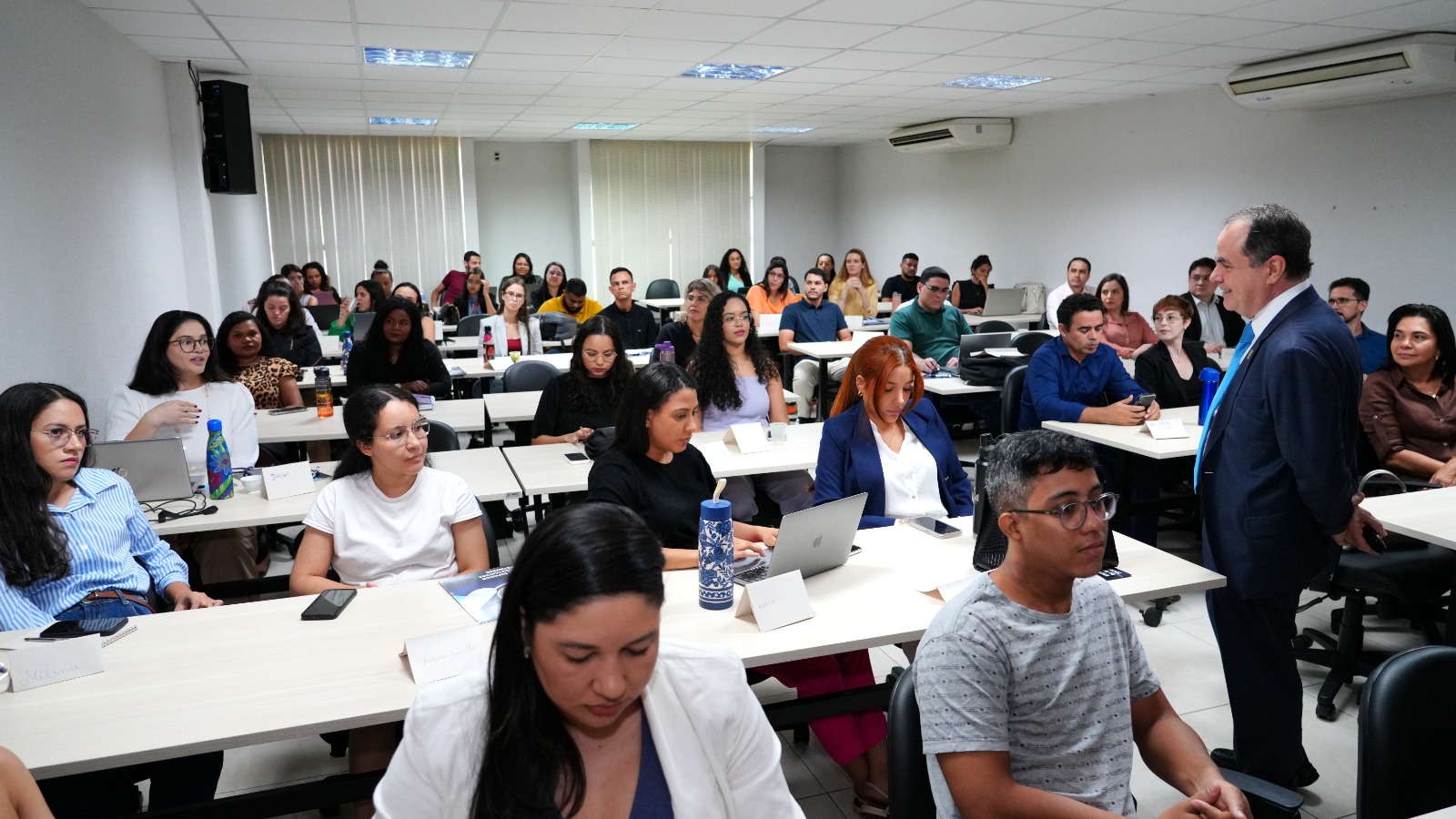
Reflecting on digital transformation in the Judiciary is more than just talking about technology, it's projecting the future of Justice with lucidity, ethics and strategy. And few do this with as much coherence between thought and trajectory as Justice Marco Villas Boas, general director of the Superior School of the Judges of the State of Tocantins (Esmat) and president of the Permanent College of Directors of State Schools of the Magistracy (Copedem), who began the course on Digital Transformation in the Judiciary on Tuesday morning (May 13th).
Right from the starting, the civil servers and students from the Legal Residency Program of the Postgraduate course in Judicial Practice (PRJud) registered in the training realized that this was not just a hot topic, but a provocation.
“I'm an eternal student, I'm thirsty for knowledge, don't worry about titles,” said the justice after reading his CV.
Director of Esmat built his presentation in an interdisciplinary way, with passages on philosophy, the history of legal thought, political economy and innovation. He highlighted how the current capitalist model accelerates the logic of innovation - “no longer one a year, but every day” - creating an environment in which technical knowledge can be transformed into a product, and human beings into merchandise.
Citing the emergence of generative systems and the growing presence of algorithms in judicial decisions, he warned:
“If you haven't noticed, those of you who think you're not using artificial intelligence... learn from your smartphones. You'll do a Google search, you'll use WhatsApp or any other app, you'll see that there's an artificial intelligence watching your life and, on the dark side of this situation, also monitoring your desires, abilities, vocations,” he teased.
For the justice, the challenge is to ensure that science and technology are not only at the service of capital, but that they are transcended by ethical values. “They need to look at the human. It is necessary to have a valid proof of the argument,” he said.
Throughout the morning, he addressed fundamental concepts such as generative artificial intelligence, intelligent systems and the impacts of digitalization on public management.
The gaze of the justice also turned to the historical reality of Brazil. He invited participants to the opening of the exhibition: Silenced Voices: struggle of Paula for freedom, which takes place this Tuesday at 4:30pm in the auditorium of the TJTO, he linked the theme to the debate on the racial biases of digital technologies.
He criticized the reproduction of inequalities by supposedly neutral systems and stressed the importance of listening carefully to black movements, especially the differences between the struggles in Latin America and Europe. “We are in a different process because we were colonized. This differentiates us from the US,” he explained.
Recalling the digitization process in the TJTO itself, Villas Boas shared his pioneering experiences. He said he was one of the first magistrates to incorporate technology into his routine, even though he faced resistance. His speech, based on density and intellectual freedom, also covered topics such as Ethics in AI, Digital Exclusion, Democratization of Knowledge and the Limits of Computational Reasoning.
“The computer doesn't think like us; you have your own individualities, emotions and values that set you apart,” he said.
In defending a strategy for dealing with technology in the Judiciary, he argued that “judges need support. To improve the provision of justice, we need to think systemically”.
Testimonial

The experience had a positive impact on the class. Legal resident Tamires Brilhante summed up the feelings of many by sharing that the “meeting has been very enriching for us legal residents. Expectations are very positive, especially as this is an extra module on Artificial Intelligence, a current and relevant topic. Sharing knowledge and technological advances at the Court of Justice contributes significantly to our training.”
In the next meetings, participants will explore tools such as Bing Chat and Copilot, as well as discussing ethics in AI, automation of judicial processes and the impacts of digitalization on the accessibility of Justice. The course continues until this Thursday (May 15th).
_thumbnail_thumbnail.jpeg)
_thumbnail_thumbnail.jpeg)
_thumbnail_thumbnail.jpeg)
_thumbnail_thumbnail.jpeg)
_thumbnail.jpeg)
_thumbnail.jpeg)
_thumbnail.jpeg)
_thumbnail.jpeg)